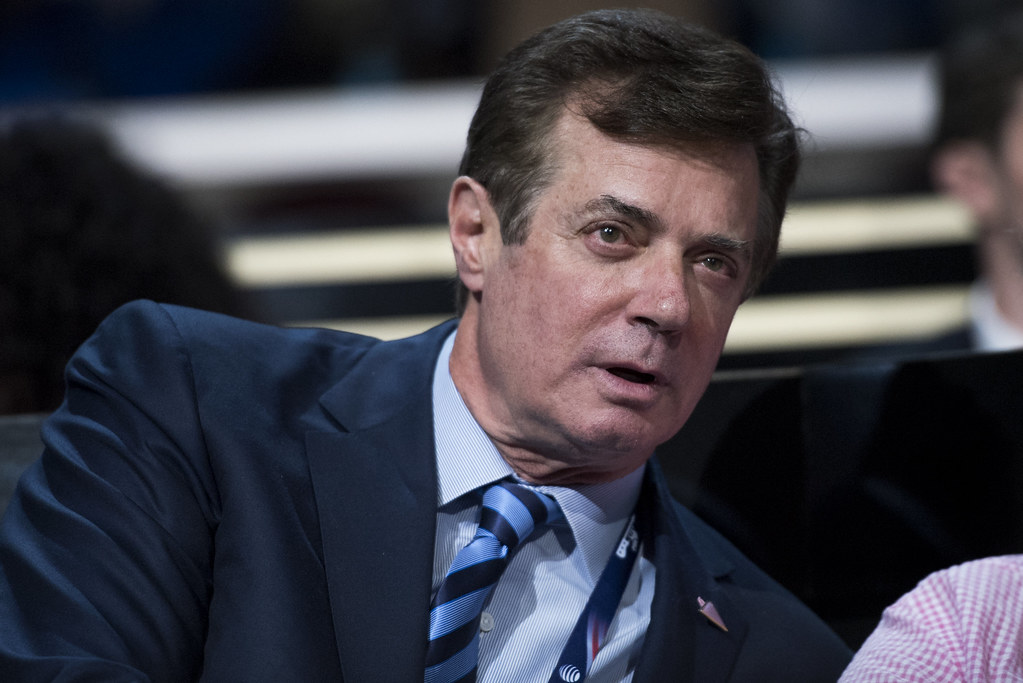Legal experts explain that there are four things to consider while waiting for the Manafort jury to return on Monday to renew deliberations.
Noted Washington D.C. media outlet, Roll Call, published an in-depth article discussing the reasons why the jury has not yet reached a verdict after two days of deliberation in the trial of former Trump campaign chairman, Paul Manafort.
Roll Call reached out to three legal experts for their analysis: former criminal investigator and criminal defense attorney, Seth Abramson; former U.S. Attorney and Deputy Assistant Attorney General, Harry Litman; and an unnamed former Justice Department prosecutor who has tried similar cases.
The jury of six men and six women are considering whether Manafort is guilty or innocent on some, all, or none of 18 counts of tax evasion and bank fraud. So far, with roughly 14 hours of deliberation, the jury was unable to reach a verdict and were dismissed on Friday.
According to Roll Call‘s experts, there are three points to consider this weekend while waiting for the jury to return on Monday:
1. This case contains 18 tax evasion and bank fraud counts — and the jury must come to a conclusion on all 18
- “Because this is a ‘paper case’ with a number of charges, complicated financial records, and a lay jury not selected for its understanding of international financial transactions, we would expect a medium-length to long deliberation process — at least a couple days — simply for the jurors to work through all the evidence and discuss each charge separately,” Abramson explained, adding that: “Quick verdicts are not generally associated with lengthy, document-heavy white-collar prosecutions.”
- Roll Call‘s unnamed former federal prosecutor explained that the typical rule for white-collar prosecutions is to expect one day of jury deliberation for each week of testimony (in this case there were two weeks of testimony). However, juries will frequently take longer in complicated cases such as this one – particularly when there are numerous charges. “You have to come to a conclusion on all 18 [charges],” the former prosecutor said. The jury may have already decided on as many as 17 of the charges, but are locked in debate over the final count. “In some cases, juries reach quick decisions on nearly all the charges but take a long time to decide what to do with a final charge or two that they think may not have been proven beyond a reasonable doubt,” Abramson noted.
2. Thursday’s jury questions indicate the jury is meticulously considering the charges against Manafort
- There was considerable concern indicated by leading media outlets concerning the jury asking for clarification regarding “reasonable doubt.” However, as Roll Call‘s experts explained, that is a common question juries have and should not be taken as an indication they are considering acquitting Manafort of all 18 charges. Litman stated: “That’s been the most frequent question of my career,” and Roll Call added that: “Abramson agreed, saying it was ‘fairly common’ for a jury to seek a crystal-clear answer on what constitutes reasonable doubt.”
- Continuing, Roll Call reported that: “The jury had three other questions for the judge Thursday before they recessed for the day, including one requesting that they be given a document that matched the prosecution’s evidence exhibits to the relevant charges.” Litman told Roll Call that the jurors’ questions “reflected a pretty meticulous jury going through the charges top to bottom,” adding that those kinds of questions indicate that the juries deliberation could result in a “three-, four-, five-day process.”
3. Jurors are likely being more careful than usual
- As Roll Call reported: “Most of the jurors were selected from a highly educated pool of potential panelists, many of whom undoubtedly were aware that special counsel Robert S. Mueller III’s team was prosecuting the case and that Manafort is a figure of considerable political clout with ties to a highly divisive president.” Indeed the jury is not sequestered and are likely well aware of the controversy surrounding the trial.
- “If any or all of the jurors have a sense of the public interest in this case, they are likely to be even more careful and deliberative in their review of the evidence than usual,” Abramson said, adding: “We should not take anything about the current length of the deliberations to suggest that Manafort will or will not be convicted on all or most of the charges he faces.”
- Litman weighed, in stating: “I’m not [lead prosecutor] Greg Andres, so it’s easy for me to say he doesn’t need to bite his nails right now, but he doesn’t need to be biting his nails yet.”
We took the liberty of separating part of Roll Call’s explanation for their second point to create an additional point to consider.
4. Timing of the juror’s questions suggest they are working well together.
- “Jurors submitted their questions roughly 10 minutes before 5 p.m. Thursday,” Roll Call explained adding: “That the jurors gave the judge their questions at the end of the day as opposed to at various intervals before suggests cohesion because they were able to draft the questions, set them aside, and move on to other matters throughout the day, Litman said.”


You must be logged in to post a comment Login